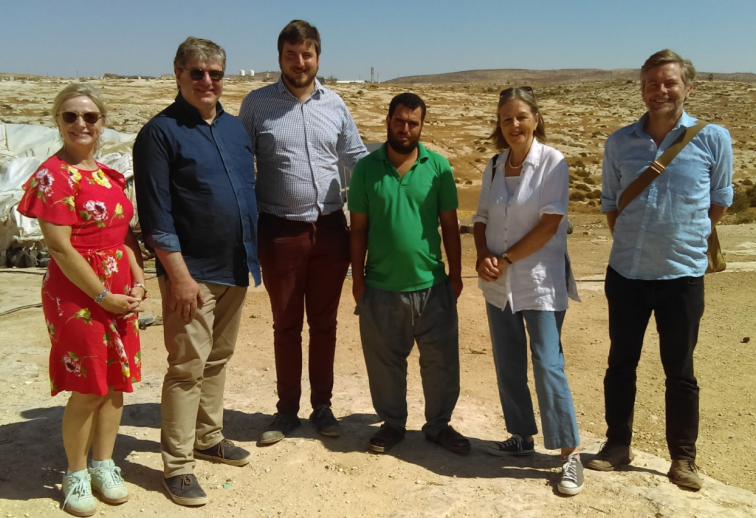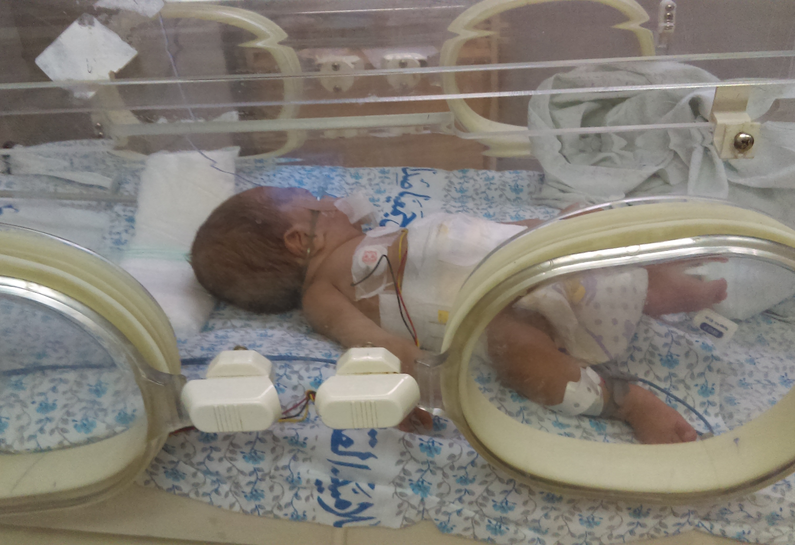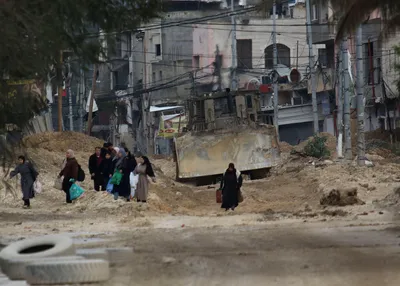UK parliamentarians meet Palestinians living under occupation

Neil Sammonds, Director of Advocacy and Campaigns at MAP, reports back from the delegation:
After an early departure from Gaza (article forthcoming), I joined the British parliamentarians in the East Jerusalem house of the Shamasneh family. Alistair Carmichael MP, Baroness Tessa Blackstone, Tracy Brabin MP and I heard how, despite having lived there for 50 years, the family faced imminent eviction to allow Jewish settlers to move in. Tragically, Israeli security forces made the family leave on Tuesday and settlers are now inside and another Israeli flag flies over occupied Palestinian land.
We moved from Sheikh Jarrah to nearby Silwan, where local activist Zuheyr and Sarit of the Israeli human rights organisation B’Tselem showed us further losses that Palestinians are suffering. We saw the rubble of a recently demolished Palestinian home, and two buildings taken over by settlers and draped with the Israeli flag.

We met with children at the MAP-supported Saraya centre in the Old City of Jerusalem, and caught up with the MAP-funded mobile clinic at Fusayil in the Jordan Valley. Most of the Valley is ‘Area C’, meaning that Israel retains control of it – and gains enormous financial benefits from its minerals and agricultural lands - despite it being part of the occupied West Bank. Yet Area C is denied any permanent medical buildings, and the mobile clinic provides vital care.
In the northern West Bank, local agricultural workers and activists from Qaryut and Burin, and members of al-Haq and Diakonia human rights organisations, told us how so much of their land has been stolen by settlers, and how remaining land is frequently attacked by them, protected by Israeli soldiers and policies.
Escorted by a member of Breaking The Silence, the group formed by veterans of the Israeli army who speak out about the abuses they were forced to commit and to witness, we saw the same ugly trends in the once bustling centre of Hebron, its main thoroughfare forbidden for Palestinians, and were shocked to see the “blessed” grave of Baruch Goldstein, the Jewish settler who killed 29 praying Muslims in 1994, and the adjacent Memorial Park to his spiritual guide, the ultra-extremist Meir Kahane. We were warmly welcomed into the home of Nasser in the south Hebron hills. His village, Susiya, has already been demolished six times by Israel, which otherwise supports the settlements growing in the occupied lands around it.
We had coffee overlooking Hebron city with Issa Amro, a Palestinian human rights defender and anti-occupation activist who Baroness Blackstone knew personally. For his non-violent activities he is being tried before an Israeli military court. This week he was arrested, by Palestinian security forces.
Complex politics indeed. To help make sense of the politics and issues, we were briefed by the UN Office for the Coordination of Humanitarian Affairs, and heard that the UN Secretary-General and team had sat in our seats just the day before, as well as by the British Embassy to Israel. We had additional meetings with two Palestinian ministers, both of whom I am pleased to say also spoke highly of MAP.
Just 72 hours after arriving in Jerusalem from Gaza, I was back at Heathrow Airport. At the end of this gruelling but fascinating trip, Tracy Brabin and Tessa Blackstone wrote that the only way for people to truly understand this conflict is to visit the area themselves. I am glad that MAP, and our partners at the Council for the Advancement of Arab-British Understanding (Caabu), can facilitate such understanding.
Related content


